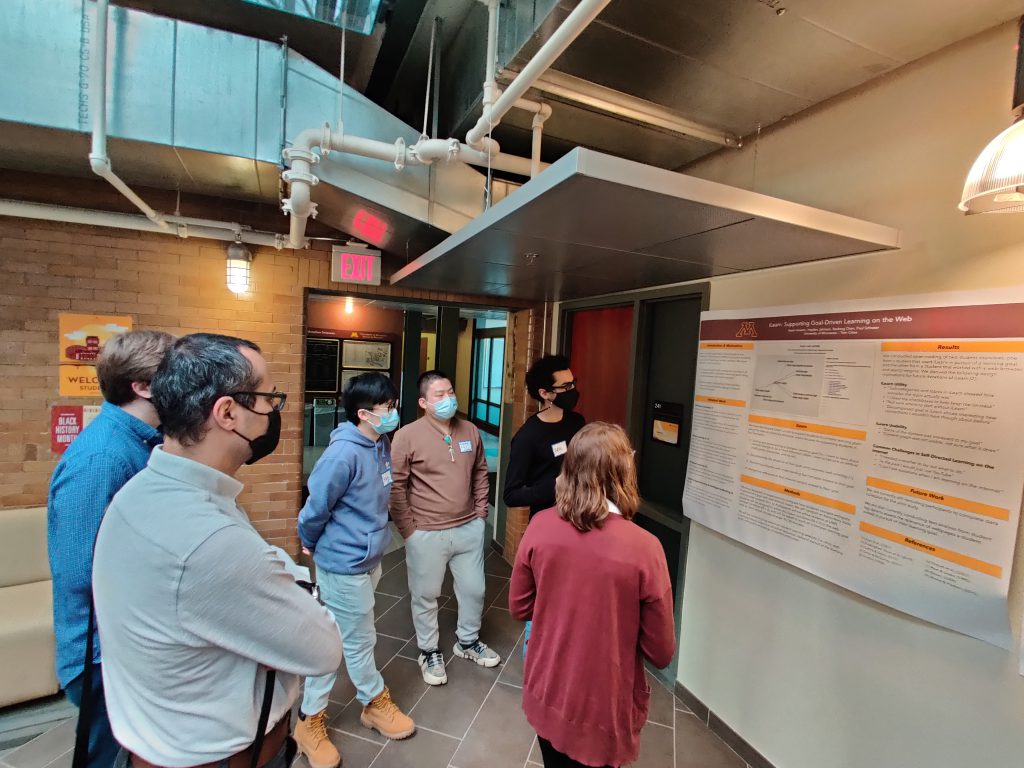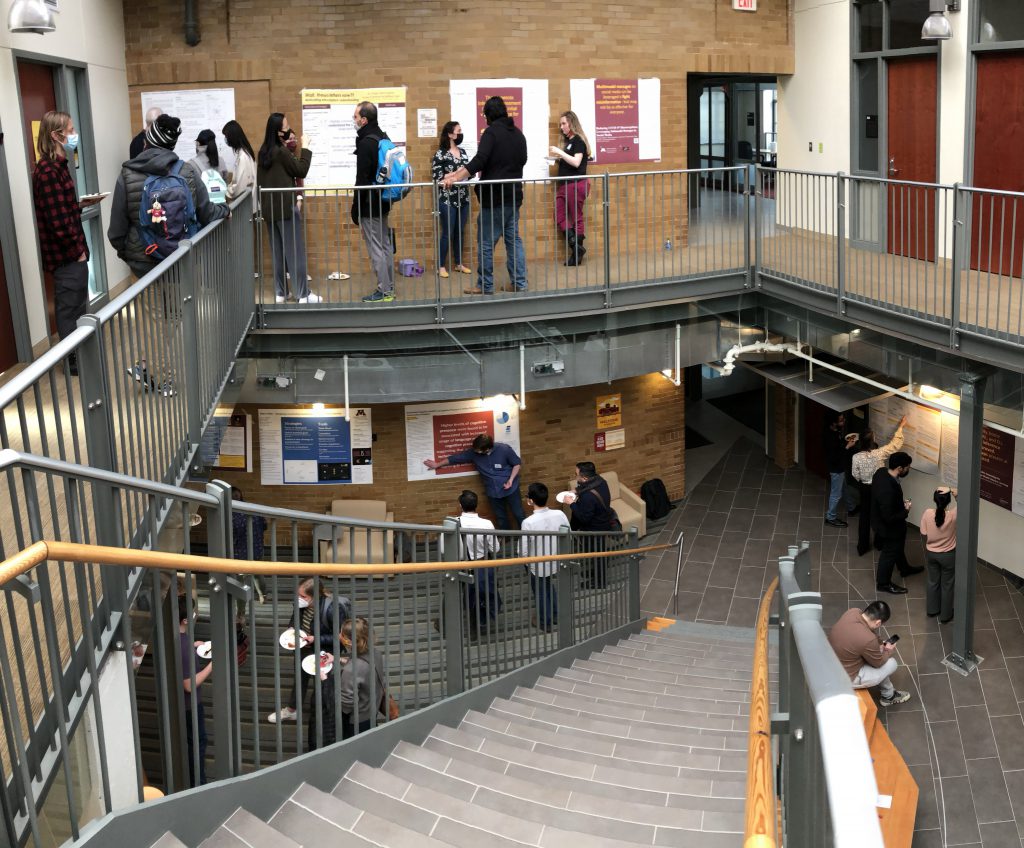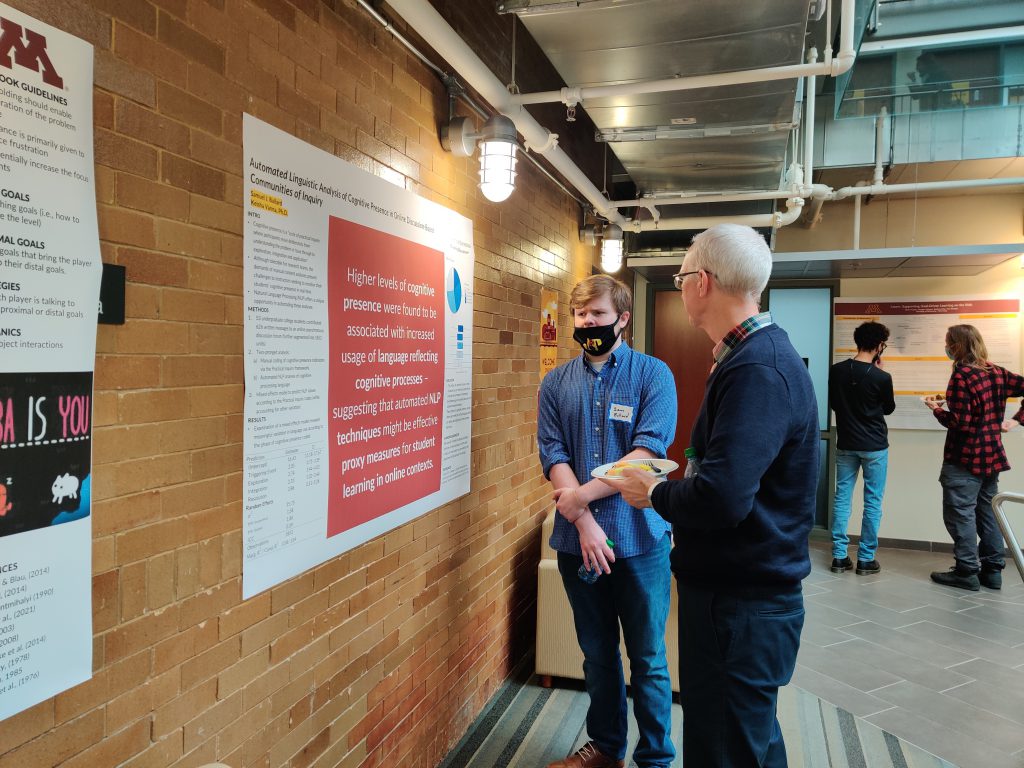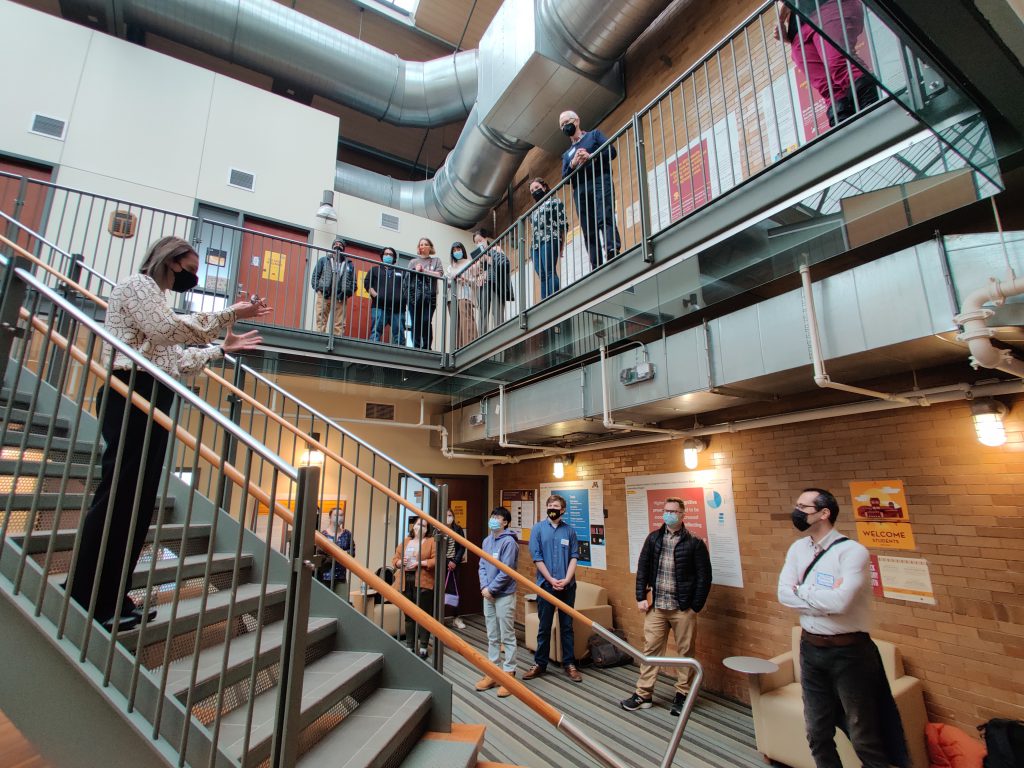Student-facing Learning Analytics Dashboards (LADs) provide visualizations of behavior and performance directly to students. They serve as meta-cognitive tools that enable awareness, self-reflection, and sensemaking. In this talk Dr. Stephanie Teasley provides a general overview of Learning Analytics and how it is currently being used by the University of Michigan, with a focus on their LAD, My Learning Analytics (MyLA). Using both qualitative and quantitative methods, this presentation addresses research questions such as:1) What are the characteristics of the students who choose to use MyLA?, 2) How do these students make use of MyLA?, and 3) What different patterns of use characterize MyLA users? The findings highlight the importance of understanding students’ experience with the dashboard and demonstrate that one size does not fit all in the design of learning analytics tools. Watch the recording below.
Category: Events
Hacking Online Virality with Dr. Fil Menczer & PhD Students (Indiana University)
Seminar
As social media become major channels for the diffusion of news and information, it is critical to understand how the complex interplay between cognitive, social, and algorithmic biases triggered by our reliance on online social networks makes us vulnerable to manipulation and disinformation. Dr. Filippo Menczer, Luddy Distinguished Professor of Informatics and Computer Science at the Indiana University School of Informatics, Computing, and Engineering, overviews ongoing network analytics, modeling, and machine learning efforts to study the viral spread of misinformation and to develop tools for countering the online manipulation of opinions.
Demos
Indiana University School of Informatics, Computing, and Engineering PhD students Matthew Deverna, Kaicheng (Kevin) Yang, and Christopher Torres-Lugo followed the talk with demonstrations of three analytic tools developed in their lab: Covaxxy, Botometer, and Hoaxy. Covaxxy is a dashboard that allows everyone to visualize the relationship between COVID-19 vaccine adoption and online (mis)information on Twitter. Botometer is a machine-learning-based social bot detection tool. Hoaxy visualizes the spread of articles online. Articles can be found on Twitter, or in a corpus of claims and related fact checking. Together, these tools can detect, represent, and examine how information spreads on social media.
First LIL Research Symposium
The Learning Informatics Lab hosted its inaugural Research Symposium Wednesday, March 16, 2022. Featured research ranged from educational technologies to assess and support online learning, to self-directed learning in game and maker-space contexts. For a full list of research topics and presenters, see here.




Quantitative Ethnography: Human Science in the Age of Big Data with Dr. David Williamson Shaffer (University of Wisconsin, Madison)
In this talk, David Williamson Shaffer looks at the transformation of the social sciences in the age of Big Data through the lens of Quantitative Ethnography, an approach to analyzing human behavior that integrates data-mining, discourse analysis, social interactionism, cognition, learning science, statistics, and ethnography to produce new and innovative ways of thinking that go beyond the old dichotomy of qualitative and quantitative methods and past simple mixtures of methods in thinking about data and data analysis.
Expanding Interaction Geography in Museum Studies with Dr. Ben Rydal Shapiro (Georgia State University)
On Friday, February 18, 2022, the Learning Informatics Lab and Science Museum of Minnesota hosted GSU professor Dr. Ben Rydal Shapiro. This talk demonstrates new methods to transcribe and dynamically visualize people’s interaction as they move over space and time that comprise an approach called interaction geography, focusing on the value of interaction geography for museum studies. Specifically, Shapiro traces his collaborative development of interaction geography with one museum and reviews recent efforts to scale open-source tools from this work to support collaborative research and design in other museums, as well as other settings, such as schools. The talk concludes by highlighting how this work raises new questions about learning and the ethical use of data that span multiple fields including museum studies, learning sciences, and learning analytics.
An Exploratory Study of Playful, Goal-Flexible, and Rule-Explicit Problem Solving
Jesslyn Valerie and David DeLiema share their pilot work on middle school and college students playing Baba is You, a challenging, puzzle-based video game, to explore what actions players take when they reach impasses during play. They also discussed coding procedures involved in their interaction analysis.
The Role of Conceptions of Learning in Technology-Enhanced Learning Environments with Dr. Chin-Chung Tsai (National Taiwan Normal University)
On Thursday, October 7, the Learning Informatics Lab hosted its first seminar of the Fall 2021 semester. This talk, featuring Dr. Chin-Chung Tsai, reviews a series of studies from his research team regarding students’ conceptions of learning for different subject matters and various types of technology-enhanced instructional activities. It is found that the students possess quite different conceptions of learning by technology-enhanced learning environments than those in traditional school settings. The interplay among conceptions of learning, approaches to learning and learning outcomes for certain technology-supported environments will be discussed. How the technology may play a role in fostering students’ conceptualization of learning will also be addressed.
Watch a recording of the talk below.
Should We Double Down on Truth? The Promise and Risks of Collective Sense-making with Dr. Noah Weeth Feinstein (University of Wisconsin, Madison)
The final talk in the Lab’s Spring 2021 Learning in a ‘Post-Truth’ World series took place Thursday, April 22 and featured the University of Wisconsin- Madison’s Dr. Noah Weeth Feinstein.
In 2020, Noah Weeth Feinstein and David Waddington argued for shifting the balance of science education away from individual truth-judgments and toward collective sense-making. How does that argument hold up? In this talk, Dr. Weeth Feinstein will review their argument and discuss both the promise and risks of wading deeper into the social world and engaging directly with messy problems in messy practical contexts. Dr. Weeth Feinstein concludes by asking whether concepts like value and appropriate respect offer more fruitful territory for science education than the familiar framing of truth and trust.
Watch a recording of the talk below.
Promoting Apt Epistemic Performance with Dr. Clark Chinn (Rutgers University)
On Thursday, March 11, the Lab hosted its second talk in our Learning in a ‘Post-Truth’ World series. Drawing on recent collaborations with Sarit Barzilai and Ravit Golan Duncan, Dr. Clark Chinn (Rutgers University) presents an overview of how educators can effectively respond to the “post-truth” challenges of misinformation, conflicting information, and mistrust in formerly trusted institutions of knowledge (e.g. science, media). Dr. Chinn begins with an analysis of apt epistemic performance as the goal of epistemic education. This analysis identifies five aspects of apt epistemic performance; many post- truth challenges can be viewed as involving breakdowns in these five aspects of apt epistemic performance. Dr. Chinn then outlines a set of design principles to improve education and address these breakdowns. These principles specify new ways to design learning environments that can foster the individual and collective abilities needed to think well in the modern world.
Watch a recording of the talk below.
Who to Believe? Conceptualizing and Navigating Epistemic Disagreement with Dr. Simon Knight (University of Technology Sydney)
The Lab’s Learning in a ‘Post-Truth’ World speaker series kicked off Monday, February 22, 2021 with Dr. Simon Knight‘s seminar Who to Believe? Conceptualizing and Navigating Disagreement. Dr. Knight is a senior lecturer in the University of Technology Sydney, Transdisciplinary School, Director of the Centre for Research on Learning in a Technological Society, and co-editor-in-chief of the Journal of Learning Analytics. His talk draws on research in epistemic cognition, including his own research on how people search for and talk about evidence, as well as recent work in conceptualizing expert-expert disagreement, to flag key implications for helping people navigate these issues.
Watch a recording of the webinar below.

